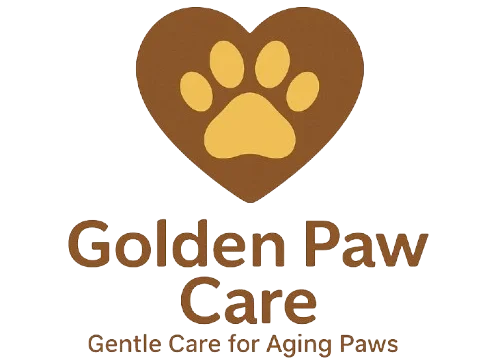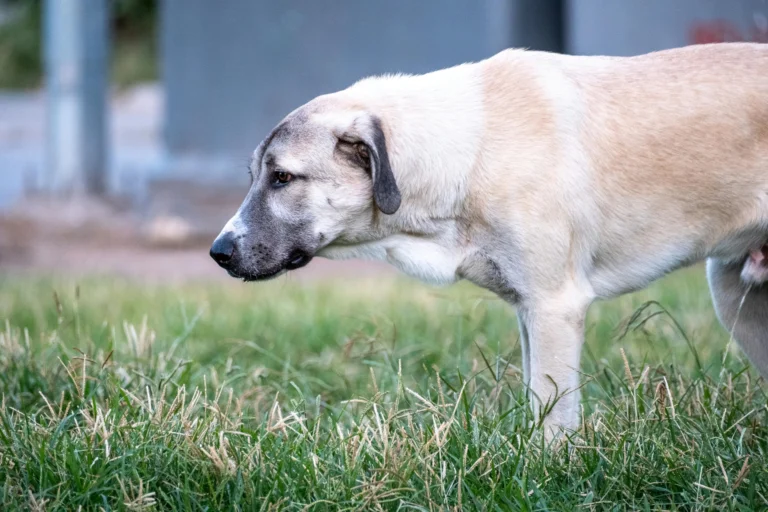Senior Dog Nutrition
Introduction: Why Senior Dogs Need Special Nutrition
As dogs grow older, their bodies begin to change in ways that affect their health, energy, and dietary needs. What worked well during their younger years may no longer provide the same benefits in their senior years. Just like humans, aging dogs require a more tailored approach to nutrition that supports their slowing metabolism, weaker joints, and changing digestive systems.
When a dog enters its senior years, usually around 7 years old for small breeds and 5 for larger ones it becomes more vulnerable to weight gain, arthritis, heart disease, and other age-related conditions. These changes make it essential to rethink what goes into their food bowl. A proper senior dog diet isn’t just about reducing calories, it’s about delivering the right balance of nutrients that promote longevity and comfort.
A key issue for aging pets is maintaining joint health. Nutrients such as glucosamine and chondroitin may help ease stiffness and enhance mobility. At the same time, senior dogs need high-quality protein to preserve muscle mass, even if their calorie needs decrease. Fiber becomes increasingly important to help with digestion, and antioxidants play a key role in boosting their immune system.
Some older dogs also begin to experience cognitive decline. Nutritional support from omega-3 fatty acids and B vitamins can help keep their minds sharp and improve overall mood and responsiveness.
Providing your senior dog with the right food is more than just a health choice, it’s an expression of love and commitment. The goal is not only to extend their life but to enhance the quality of each day. By adjusting their nutrition to fit their age, you give your loyal companion the best chance at a comfortable, vibrant, and happy final chapter.
Feeding your senior dog properly can:
- Help manage chronic conditions
- Reduce vet bills in the long term
- Improve mobility and comfort
- Maintain mental alertness
- Support immune defense
Dogs have given us their best years, now it’s time to give them ours.

Table of Contents
Understanding the Aging Process in Dogs
As your dog grows older, its body begins to experience subtle but impactful changes that can influence everything from movement to mood. While every dog ages differently, most will eventually show signs that their physical and nutritional needs are shifting. Recognizing these changes early allows pet owners to make thoughtful adjustments, especially in diet and daily care.
A slower metabolism is often one of the earliest noticeable changes. Older dogs naturally burn fewer calories, which means they can gain weight more easily, even if they’re eating the same amount as before. Excess weight places added strain on joints and organs, raising the likelihood of arthritis, heart disease, and diabetes.
Muscle mass also tends to decline with age. Once active dogs may begin to lose strength or stamina. Feeding your dog food that includes high-quality protein becomes essential for preserving lean muscle without burdening the kidneys or digestive system.
Cognitive changes are another concern. Some senior dogs may become disoriented, anxious, or forgetful. These changes in behavior are often linked to age-related brain decline, similar to dementia in humans. A diet rich in brain-supporting nutrients like DHA, vitamin E, and L-carnitine can help promote mental sharpness.
Immunity also tends to weaken over time. Senior dogs become more susceptible to infections and illnesses, making immune-boosting ingredients like antioxidants, zinc, and vitamin C more important than ever.
Digestive efficiency declines, too. As dogs age, their bodies may not absorb nutrients as well as they used to. This makes it essential for their food to be both high-quality and easy to digest. Including gentle fibers and probiotics can help promote a healthy digestive system and support regular bowel movements.
By understanding these age-driven changes, you’ll be better equipped to choose food that supports your dog’s health and happiness through every stage of their senior years.
What Qualifies as Senior Dog Food?
Senior dog food formulas are designed with:
- Lower calories to prevent weight gain
- Joint-support supplements like glucosamine and chondroitin
- High-quality protein to maintain muscle mass
- Added fiber for better digestion
- Antioxidants and omega fatty acids for brain, skin, and heart health
- Low sodium and phosphorus to support kidney health
These specialized diets are crafted to meet the unique needs of aging canines.
How to Choose the Best Senior Dog Food: Key Factors to Consider
Selecting the right food for a senior dog is more than just picking a bag labeled “senior formula.” Older dogs have unique nutritional needs, and not all products are created equal. To ensure your aging companion thrives, it’s important to evaluate their diet based on quality ingredients, nutritional balance, and specific health concerns.
Start by looking at the protein source. Senior dogs still need plenty of protein to maintain muscle, but the protein should be high-quality and easily digestible, such as chicken, turkey, fish, or lamb. Avoid dog foods that rely heavily on meat by-products or fillers, as these offer little nutritional value and can be hard on aging digestive systems.
Next, check the fat and calorie content. Since older dogs are typically less active, they don’t need as many calories. However, fat is still important to maintain healthy skin and energy. A well-balanced senior formula should contain moderate fat and reduced calories to help prevent weight gain.
Joint support is another key factor. Ingredients like glucosamine, chondroitin, and omega-3 fatty acids can help reduce inflammation and support mobility, especially in dogs with arthritis or joint stiffness.
Also, look for digestive support, such as added prebiotics, probiotics, or gentle fibers like pumpkin or oatmeal. These can help regulate bowel movements and improve nutrient absorption.
For dogs experiencing cognitive decline, seek out formulas that include DHA, antioxidants, and B vitamins, which can support brain health and reduce confusion or anxiety.
Lastly, make sure the food is AAFCO-approved and specifically formulated for “maintenance of adult dogs” or “senior dogs.” Avoid generic, one-size-fits-all labels that may not meet the unique needs of aging pets.
Choosing the best food isn’t just about taste, it’s about giving your senior dog the best chance at a vibrant, comfortable life in their golden years.
Key Nutrients Every Senior Dog Needs
As dogs enter their senior years, their bodies require a more strategic combination of nutrients to stay healthy and active. These nutrients not only help manage age-related conditions but also support overall vitality, immune strength, and comfort. Understanding which ingredients matter most can make all the difference in your dog’s long-term well-being.
1. High-Quality Protein
Senior dogs still need protein, but not just any kind. Look for easily digestible animal proteins like chicken, turkey, salmon, or eggs. These support lean muscle maintenance, tissue repair, and help fight the natural loss of muscle mass that comes with age.
2. Omega-3 Fatty Acids
Found in fish oil and flaxseed, omega-3s are powerful anti-inflammatory agents. They support dogs with joint problems, enhance brain function, and promote healthy skin and a shiny coat. DHA, a type of omega-3, is especially helpful for cognitive support in aging pets.
3. Glucosamine and Chondroitin
These supplements are essential for joint care. They help rebuild cartilage and improve mobility, particularly in dogs suffering from arthritis or stiffness. Many high-quality senior dog foods now include them as standard ingredients.
4. Antioxidants
Antioxidants like vitamins C and E, along with selenium, help protect cells from damage caused by free radicals. This can slow aging and protect against chronic diseases, while also supporting immune health.
5. Fiber and Probiotics
Aging dogs often struggle with digestion. Ingredients like beet pulp, pumpkin, or brown rice can aid regular bowel movements. Probiotics also promote a healthy gut microbiome, improving digestion and nutrient absorption.
6. B Vitamins
B-complex vitamins, especially B6 and B12, support metabolism, nerve function, and mental alertness, making them critical for senior dogs.
When these nutrients are combined in a balanced, easily digestible formula, they provide powerful support for your dog’s aging body and mind.
Common Health Problems in Older Dogs and the Role of Nutrition in Managing Them
As dogs age, their bodies undergo natural changes that can make them more vulnerable to a variety of health conditions. While aging is inevitable, the right nutrition can play a powerful role in managing or minimizing the impact of these issues. By aligning your dog’s diet with their evolving needs, you can greatly improve their quality of life.
Mobility and Joint Discomfort
One of the first age-related issues many dogs face is difficulty with movement. Years of running, jumping, and playing wear down joint cartilage, leading to stiffness or arthritis. Diets enhanced with glucosamine, chondroitin, and natural anti-inflammatories like fish oil can support joint health and reduce discomfort, helping dogs move more freely.
Excess Weight and Slower Metabolism
Senior dogs often exercise less, but their appetite may not slow down with their activity. This can lead to weight gain, which further strains joints and internal organs. A lower-calorie food with lean protein helps control weight while preserving muscle mass.
Cognitive Decline
Older dogs may experience confusion, restlessness, or forgetfulness. Brain health can benefit from specific nutrients such as DHA, L-carnitine, and vitamin E, which are known to support mental clarity and memory.
Digestive Sensitivities
An aging digestive system may not process food as efficiently. High-fiber ingredients like pumpkin or beet pulp and probiotics can improve gut health and nutrient absorption, making digestion smoother.
Immune Weakness
A weakened immune system increases vulnerability to illness. Antioxidant-rich foods containing vitamin C, beta-carotene, and selenium strengthen immune defenses.
Dental Challenges
Tooth and gum issues can make chewing difficult. Switching to softer kibble or wet food, or choosing senior diets designed to reduce tartar, can improve eating comfort.
Addressing these concerns through diet helps senior dogs stay active, comfortable, and joyful as they age.
Guidelines for Switching to a Senior Dog Diet
Changing your dog’s food isn’t as simple as swapping one bag for another, especially in their senior years. Older dogs often have more sensitive stomachs and may be less adaptable to new flavors or textures. A thoughtful, gradual transition to a senior-specific diet can prevent digestive upset and help your dog accept the change with ease.
1. Transition Slowly
Always introduce new food over a 7–10 day period. Begin by combining 25% of the senior formula with 75% of your dog’s existing food. Every couple of days, increase the proportion of the new food while decreasing the old one. Making the change gradually allows your dog’s digestive system to adapt smoothly.
2. Observe Behavior and Stool Quality
During the transition, watch for signs of discomfort, such as diarrhea, gas, or vomiting. These signs could suggest the new food is too rich or that the transition is happening too fast. If you notice problems, pause at the current mix ratio for a few days before increasing again.
3. Choose the Right Format
Some older dogs have difficulty chewing hard kibble due to dental problems. In these situations, you might try moistening dry food with warm water or opting for wet or semi-moist alternatives. Choose a format that your dog finds easy to eat and digest.
4. Stick to Consistent Feeding Times
Older dogs do well with routine. Feed at the same time each day to regulate digestion and appetite. This also makes it easier to notice changes in eating habits or energy levels.
5. Add Healthy Toppers (If Needed)
If your dog is hesitant to eat the new food, try mixing in a spoonful of plain pumpkin, bone broth, or a small amount of boiled chicken to make it more appealing, without disrupting the nutritional balance.

Wet vs. Dry Dog Food for Seniors: Which is Better?
Both wet and dry senior dog foods have their pros and cons:
Dry Food Benefits:
- Promotes dental health
- More affordable and convenient
- Longer shelf life
Wet Food Benefits:
- Higher moisture content helps with hydration
- Easier to chew (good for dogs with dental issues)
- Often more palatable
Tip: Some pet parents choose to mix both types for a balanced approach.
Homemade vs. Commercial Senior Dog Food: Pros and Cons
When it comes to feeding your senior dog, one of the biggest decisions you’ll face is whether to go with homemade meals or stick to commercially prepared foods. Each approach has its own benefits and drawbacks, and the best choice depends on your dog’s health, your lifestyle, and your budget.
Homemade Senior Dog Food: Pros
Making your dog’s food at home gives you full control over every ingredient. This is ideal for dogs with food sensitivities, allergies, or medical conditions that require precise dietary adjustments. You can also use fresh, whole foods, which some pet owners find healthier and more appealing.
In addition, homemade meals allow you to avoid fillers, artificial additives, and preservatives often found in lower-quality commercial foods.
Homemade: Cons
Despite its advantages, preparing dog food at home requires time, effort, and nutritional expertise. Without proper guidance from a veterinary nutritionist, it’s easy to create unbalanced meals that lack essential nutrients. Over time, deficiencies in calcium, vitamins, or protein can lead to serious health problems.
It can also be more expensive, especially if you’re using high-quality, human-grade ingredients.
Commercial Senior Dog Food: Pros
Most commercial senior dog foods are formulated to meet established nutritional standards. Quality brands are backed by veterinary science and include age-appropriate levels of protein, fiber, vitamins, and minerals. They’re also convenient, consistent, and readily available.
Some formulas are tailored for specific needs like joint health, weight control, or cognitive support.
Commercial: Cons
Not all commercial products are created equal. Lower-end brands may include poor-quality proteins, artificial additives, or unnecessary fillers. It’s important to read ingredient labels carefully and choose a reputable manufacturer.
In the end, the best choice may involve a combination using commercial food as a base and adding small, vet-approved homemade components for variety and health benefits.
Signs Your Senior Dog’s Diet Needs Adjusting
Senior dogs go through many internal changes that aren’t always obvious at first. Even if you’re feeding a specialized senior formula, it’s essential to stay alert to signs that the food isn’t meeting your dog’s evolving needs. Subtle shifts in behavior, energy, or appearance can often point to nutritional imbalances or health concerns that diet alone may resolve, or at least improve.
Unexpected Weight Changes
If your dog begins gaining or losing weight without a change in activity or portion size, it could be due to a mismatch in calorie intake versus metabolism. Aging dogs often need fewer calories but still require nutrient-dense food to prevent muscle loss or fat buildup.
Lack of Appetite or Food Interest
Some older dogs become picky eaters. A sudden disinterest in meals could indicate that the food is unappetizing, too hard to chew, or even causing discomfort. Try warming the food slightly or opting for a softer texture to reignite interest.
Digestive Irregularities
Gas, bloating, loose stools, or constipation are clear indicators that your dog’s digestive system may not be handling the current diet well. Foods formulated with gentle fiber sources and added probiotics can restore gut balance.
Low Energy and Dull Behavior
If your dog seems sluggish or withdrawn, it might not just be age, it could be poor nutrient absorption. A lack of B vitamins, healthy fats, or antioxidants can affect both physical and mental energy.
Changes in Coat or Skin
Dry, flaky skin or a brittle coat may signal a deficiency in essential fatty acids or proteins. When properly nourished, your dog’s coat should feel soft and look shiny.
Monitoring these signs ensures your senior dog remains comfortable and well-nourished with age-appropriate adjustments.
Feeding Schedules and Portion Control for Senior Dogs
As dogs transition into their senior years, their metabolism slows, their activity level may decrease, and their digestion can become more sensitive. These natural changes make feeding routines and portion control more important than ever. Proper scheduling and measured meals can play a big role in maintaining their health and happiness.
Create a Predictable Meal Routine
Older dogs tend to do well with structure. Feeding them at set times each day, typically twice daily, supports digestive health and helps regulate blood sugar levels. Consistent mealtimes give your dog something to anticipate, helping boost both their mood and appetite.
Ditch the All-Day Buffet
Free feeding, or leaving food out all day, isn’t the best approach for senior dogs. They’re often less active and more prone to overeating, which can lead to obesity and related health issues. Scheduled feeding allows you to monitor intake and catch early signs of appetite loss or overconsumption.
Measure Every Meal
Estimating food portions by eye can easily result in overfeeding. Instead, use a measuring cup or kitchen scale to precisely measure your dog’s food based on their age, weight, and activity level. Senior dogs often need fewer calories, but the food should still be rich in nutrients.
Adapt to Changing Needs
Watch for signs like weight fluctuations, low energy, or changes in stool quality these could signal that your current portion size or feeding schedule needs tweaking. Aging dogs might benefit from smaller, more frequent meals if they experience digestive discomfort or loss of appetite.
Limit Extra Calories
Treats should be occasional and nutritious. Use part of their meal as a reward during training or opt for healthy, senior-friendly snacks to keep extra calories in check.
Thoughtful feeding habits help senior dogs maintain a healthy weight, stay active, and feel satisfied.
Top Recommended Foods for Senior Dogs (With Ingredients to Look For)
As dogs age, choosing the right food becomes more than just a matter of flavor—it’s about ensuring they get the proper nutrition to support their changing bodies. Senior dogs often face health challenges such as joint discomfort, slower metabolism, reduced muscle mass, and weaker immunity. Selecting a high-quality senior dog food can help manage these concerns effectively.
Key Ingredients to Prioritize
- High-Quality Protein: Aging dogs still need protein to maintain muscle strength, especially as their bodies naturally lose lean mass. Look for named animal proteins (like chicken, salmon, or turkey) as the first ingredient.
- Glucosamine & Chondroitin: These support joint health and help ease stiffness or mobility issues, which are common in older dogs.
- Omega-3 Fatty Acids (from fish oil or flaxseed): Promote heart health, support cognitive function, and improve skin and coat condition.
- Antioxidants (Vitamin E, Vitamin C, Selenium): Strengthen the immune system and help fight age-related cellular damage.
- Prebiotics & Fiber (pumpkin, sweet potato, beet pulp): Aid digestion, especially in dogs with sensitive stomachs or irregular bowel movements.
- Low Calories, Balanced Nutrients: Look for formulas designed for weight management, as most seniors become less active and gain weight more easily.
Examples of Trusted Senior Dog Food Brands
While you should always choose based on your dog’s specific needs and veterinary advice, some well-regarded senior food lines include:
- Wellness Complete Health Senior
- Blue Buffalo Life Protection Senior
- Nutro Ultra Senior
- Hill’s Science Diet Adult 7+
- Orijen Senior Dog Food
Always transition slowly to any new food and monitor your dog’s energy, stool, coat, and appetite to ensure the new diet suits them.
Common Myths About Senior Dog Nutrition
Myth 1: All senior dogs should eat less protein.
Truth: Seniors actually need high-quality protein to prevent muscle loss.
Myth 2: Grain-free is always better.
Truth: Grain-free diets are not necessary unless your dog has allergies.
Myth 3: Human food is good for senior dogs.
Truth: Many human foods are dangerous (e.g., onions, chocolate, grapes).
FAQs
Can supplements replace senior dog food?
No. Supplements can support health, but don’t replace balanced, age-appropriate food.
What if my senior dog refuses to eat?
Try warming the food, mixing with broth, or switching flavors. If refusal continues, visit the vet.
Is raw food suitable for older dogs?
Some experts recommend raw for certain dogs, but always consult your vet first. Older dogs may have weaker immune systems.
Conclusion: Giving Your Senior Dog the Nutrition They Deserve
As your dog enters their senior years, their nutritional needs shift in ways that require your attention and care. Feeding them the same way you did when they were younger may no longer provide the support their aging body demands. A thoughtful approach to diet can make a tremendous difference not only in how long they live, but in the quality of that life.
Older dogs benefit from meals that are easier to digest, rich in targeted nutrients, and tailored to help with common age-related concerns like joint stiffness, reduced energy, and weaker immunity. By offering meals that suit their current stage, you help your dog stay active, alert, and comfortable.
More than anything, your senior dog needs consistency, love, and a diet that supports their changing body. Regular veterinary checkups, careful observation, and a willingness to adjust their meals as needed are essential. Small changes like adjusting portion size or switching to softer food can make a big impact.
In the end, proper nutrition is one of the most meaningful ways to show your loyalty to the dog who has given you years of companionship. With the right care, they can enjoy their golden years with health, comfort, and happiness.








One Comment